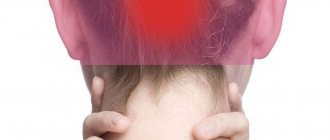Faced with many people every day, we meet such different personalities: some are cheerful, others, on the contrary, are constantly sad. Sometimes this is dictated by the type of temperament, and sometimes by the personal experiences of a person at a particular moment in time. There are also people who often laugh for no reason, whether it is illness that interests them most. Also, this question may arise from the inner circle of an individual who constantly laughs (especially in the absence of visible stimuli). In this article we will talk about what can trigger laughter attacks, what symptoms can accompany this condition, as well as what its treatment and precautions may be.
Possible reasons
Sudden bouts of laughter may indicate the presence of schizophrenia.
The appearance of sudden bouts of laughter can be caused by various factors. We will look at the most common options.
- Manifestation of a mental disorder, in particular schizophrenia or bipolar disorder. In this case, sudden bouts of laughter can be replaced by aggression, hyperactivity, and the appearance of hallucinations is possible.
- Tourette's syndrome. First noted in childhood. Characterized by the appearance of uncontrolled movements, behavioral disturbances, vocal tics, a person may shout obscenities or curses, grimace, repeat himself, or laugh.
- Angelman syndrome. It develops against the background of a genetic defect, namely the absence of part of the 15th chromosome. Such a person constantly has a smile on his face, problems with speech, poor coordination, and 80% of patients have epileptic seizures.
- The presence of epilepsy can also provoke attacks of laughter. This manifestation may also indicate the presence of a cyst or tumor in the brain, and sometimes an acute stroke.
- Laughter for no apparent reason is possible with the development of Lou Gehrig's disease or multiple sclerosis. In the early stages it can also be observed in Alzheimer's disease.
- The body's response to severe stress and grief. This is how a person can laugh when he hears about the death of a loved one or while at a funeral. This will be a shock laugh, an inability to control your emotional state.
- Unreasonable laughter may be a symptom of dementia.
- Taking certain medications or drugs can cause inappropriate laughter.
Tension, a sign of fatigue or energy?
If laughter to tears can be explained quite simply from a physiological point of view, then from a psychological point of view everything can be much more complicated. Psychologists say that in some cases such laughter may indicate a real mental disorder. Usually, laughter that turns into tears does not overtake a person because of a good joke. Often we can feel funny even from completely ridiculous or clumsy things, and the point here is not at all in a subtle sense of humor, but in the psychological tension we experience.
Laughter ending in actual crying is considered a symptom of hysteria. Of course, such attacks are temporary, but if you do not pay attention to them, then over time they can develop into a real mental disorder. Thus, as the disease progresses, convulsions and fits may appear, which are very similar to epileptic attacks.
Associated symptoms
Sometimes attacks of laughter can be accompanied by non-standard manifestations. Based on the presence of such signs, the doctor will be able to recognize which disease affects the appearance of sudden laughter. So, against the background of the attacks under consideration, the following may be noted:
- tongue protrusion;
- sleep disorder;
- impulsiveness;
- communication problems;
- blurred vision;
- involuntary blinking;
- ataxic gait;
- speech problems;
- hysteria;
- causeless crying;
- hypopigmentation;
- uncontrolled urination.
If unreasonable laughter is accompanied by the presence of at least one alarming symptom, you should immediately consult a doctor.
We Underestimate These Basic Human Reactions
Professor Carolyn Mac Gettigan from Royal Holloway College has noted the same social element of laughter in her work. She explores whether our brains can tell the difference between spontaneous, hysterical laughter and more forced social laughter.
“We can use laughter to punctuate our interactions as social glue. It makes it easier to connect with others,” says Mac Gettigan. “I think we underestimate the amount of laughter in life.”
In her research, Carolyn decided to record different categories of laughter produced by the same person—forced, social, and real in response to a joke. After doing the analysis for different situations, she found that we all had a good understanding of the difference.
According to Mac Gettigan, our brains perceive laughter in a social context as a conversation where we are trying to determine the emotional and mental state of another person.
Russians are actively booking tickets to Latvia: flights will resume on March 17
Breakfast is important for ladies after 50: how to improve your health with healthy food
3 cases when calcium from cottage cheese is not absorbed at all: how to eat it correctly
Methods of counteraction
Sometimes a person himself realizes why he cannot restrain himself from an impending attack of laughter. And sometimes, just auto-training is enough. But there are also cases when the cause of everything is a disease that requires specialized medical supervision and treatment under his guidance.
We will look at possible methods of dealing with sudden attacks of laughter.
- Drug therapy. So, for example, if a patient has Angelman syndrome, then he is prescribed anticonvulsants and drugs aimed at preventing epileptic seizures; for Tourette's syndrome, antipsychotics are prescribed; psychotropic drugs can also be prescribed; in severe cases, a neurostimulator is implanted (it is attached to the brain).
- Psychotherapy. For example, the treatment of hysterical neurosis often requires precisely this type of therapy. The help of a psychologist or psychotherapist is also necessary in situations with mental disorders, depression, and constant stress. Sessions may include hypnosis, cognitive behavioral therapy, group or family sessions.
- Physiotherapy, physical therapy, massage can be used in combination with the main type of therapy.
It is worth considering separately auto-training as a method of psychological therapy. When trying to overcome sudden laughter on your own, you can resort to one of the methods below.
- If you feel like laughter is about to tear you apart from the inside, try to hold it back. To do this, just close your eyes and repeat to yourself “I control myself, I restrain my emotions, I keep my laughter inside.” When repeating statements to yourself, it is important that they are in an affirmative form and that the “not” part is missing.
- Another way to control yourself is to transfer your thoughts to something else, preferably something that doesn't make you laugh. You can remember some event that forced you to remain serious.
- Imagine yourself as an outside observer. Try to look at the situation from the outside. How do you look in the eyes of other people now?
- For some, the above options do not help, and they have to resort to a more radical method, namely physical action. For example, you might pinch yourself when laughter creeps up too close or bite your lip.
Typical ups and downs
We cannot feel the same way every day and we fortunately rely on different mechanisms to express what is happening to us. But the problem is the magnitude and change of our moods when they are sudden and extreme and for no apparent reason.
The unreasonable and intense ups and downs of our moods can be harmful to our mental health and our relationships with others. When we live in a constant “emotional roller coaster”, we can neither become attached to anything nor understand what is happening to us. If you go through stages of emotion, depression, euphoria, tears, energy, fear, happiness and anxiety in one day, then you may be suffering from emotional instability.
Precautionary measures
Of course, you cannot completely protect yourself from the likelihood of developing bouts of causeless laughter. However, you can minimize the likelihood of this phenomenon occurring. To do this, the following recommendations should be followed.
- It is extremely important to have active pastime and relaxation. Of particular importance is healthy, full sleep (at least seven hours).
- It is necessary to pay attention to good nutrition, to the presence of all vitamins and microelements, biologically active substances in the diet.
- It is worth doing at least minimal physical activity every day.
- It is important to learn how to prevent stress from entering your life.
- Get rid of bad habits, if any. You should not smoke or abuse alcohol or take drugs.
- If any diseases appear, including infectious or autoimmune diseases, treat them promptly.
It is important to understand that bouts of laughter can occur in avid optimists, people who find something positive in everything, they are no strangers to smiles on their faces, and you can often hear laughter from them. However, it is important to pay attention to whether there was really a reason, or did the laughter arise out of nowhere? And then you should pay attention to the person’s health status and, if necessary, show him to a doctor.
Emotions vs Moods
To better understand emotional instability, we first need to be able to differentiate between emotions and moods.
Emotions are intense and varied, and they arise as a reaction to a stimulus. Be it external, like a traffic jam when we are in a hurry, or internal. That is, without a certain situation they cannot develop. A traffic jam causes anger, a love letter causes happiness, and loss causes sadness.
Sentiments, on the other hand, tend to be stable over time. They may even remain stable for several weeks because they are deeper and can be determined by various factors, from lifestyle to the nervous system.
When a person is emotionally unstable, their mood often changes. This problem may be due to specific circumstances such as exhaustion, low self-esteem or lack of goals, but it may also be due to a reason that we do not know how to explain. One way or another, if our mood is negative, it requires our intervention.











